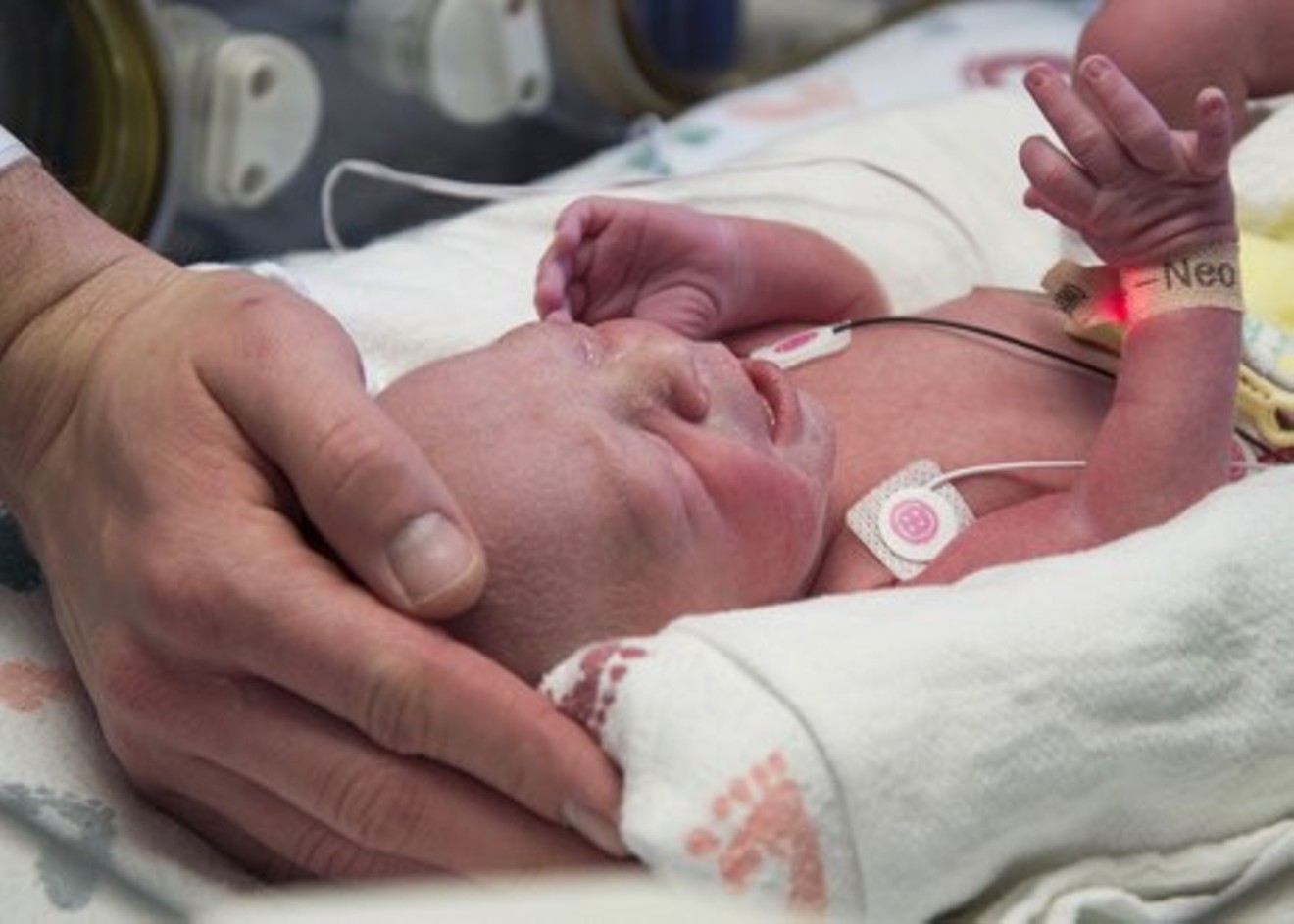The birth of baby in Dallas to a woman with a transplanted uterus is a promising sign that the procedure, first successfully performed in Sweden in 2014, may open avenues for many more women unable to give birth, doctors at Baylor University Medical Center said Monday.
The baby boy arrived last month to a family taking part in a study of uterine transplants at Baylor. He's the first child in the U.S. to be born to a mother with a transplanted uterus.
"I think what this case does is it really confirms that this is doable," said Dr. Liza Johannesson, the lead obstetrician and gynecologist for the study. "This a procedure that can be replicated ... and that's very important for all the [hospitals] worldwide that are starting up [uterine transplants] right now."
The team of doctors behind the study praised the determination of the women taking part.
Doctors at Baylor began the ongoing clinical trial a year and a half ago, with the goal of enrolling as many as 10 women for uterine transplants. While the hospital did not give details about any of the women in the trial, Time reported last week that eight women have had transplants so far and one participant in the study is pregnant.
In order for a woman to have a child through a uterine transplant, she must go through a five-step process. First, the woman's eggs are harvested, fertilized and frozen through in vitro fertilization. Next a donor womb and cervix are implanted, and the woman is given immunosuppressant drugs so that the donated uterus isn't rejected. As little as 12 months later, an embryo can be implanted in the transplanted uterus. If the process is successful, the woman undergoing the transplant becomes pregnant and gives birth nine months later.
Women participating in the study are driven to physically give birth to their own children, one of the doctors with the study said.
“We are very humbled by understanding the depth of the desire of a woman to carry her own pregnancy," said Dr. Giuliano Testa, the principal investigator of the uterine transplant clinical trial at Baylor. "It was probably the one thing that, as a man, as a father even, that I totally underestimated.”
In order to be considered for Baylor's study, women must be between 20 and 35 years old and have functional ovaries but either no uterus or one that is not functioning. The woman who gave birth on Friday — the hospital is not identifying her — was born without a uterus. In a statement provided by the hospital Monday, the new baby's family thanked the hospital and the doctors on the study's team for all their work toward the milestone.
"Last month, with the help of Baylor Scott and White, we were able to add a beautiful baby boy to our family after a successful uterine transplant," the family said. "We consider ourselves profoundly blessed to have been a part of this study, and we are optimistic that this success will lead to many more in the future."
While the doctors behind the Baylor study believe that their findings could eventually allow thousands of women to become pregnant, the child born in Dallas is only the ninth worldwide to be born to a woman after a uterine transplant.
[
{
"name": "Air - MediumRectangle - Inline Content - Mobile Display Size",
"component": "18855504",
"insertPoint": "2",
"requiredCountToDisplay": "2"
},{
"name": "Editor Picks",
"component": "17105533",
"insertPoint": "4",
"requiredCountToDisplay": "1"
},{
"name": "Inline Links",
"component": "18349797",
"insertPoint": "8th",
"startingPoint": 8,
"requiredCountToDisplay": "7",
"maxInsertions": 25
},{
"name": "Air - MediumRectangle - Combo - Inline Content",
"component": "17105532",
"insertPoint": "8th",
"startingPoint": 8,
"requiredCountToDisplay": "7",
"maxInsertions": 25
},{
"name": "Inline Links",
"component": "18349797",
"insertPoint": "8th",
"startingPoint": 12,
"requiredCountToDisplay": "11",
"maxInsertions": 25
},{
"name": "Air - Leaderboard Tower - Combo - Inline Content",
"component": "17105535",
"insertPoint": "8th",
"startingPoint": 12,
"requiredCountToDisplay": "11",
"maxInsertions": 25
}
]












